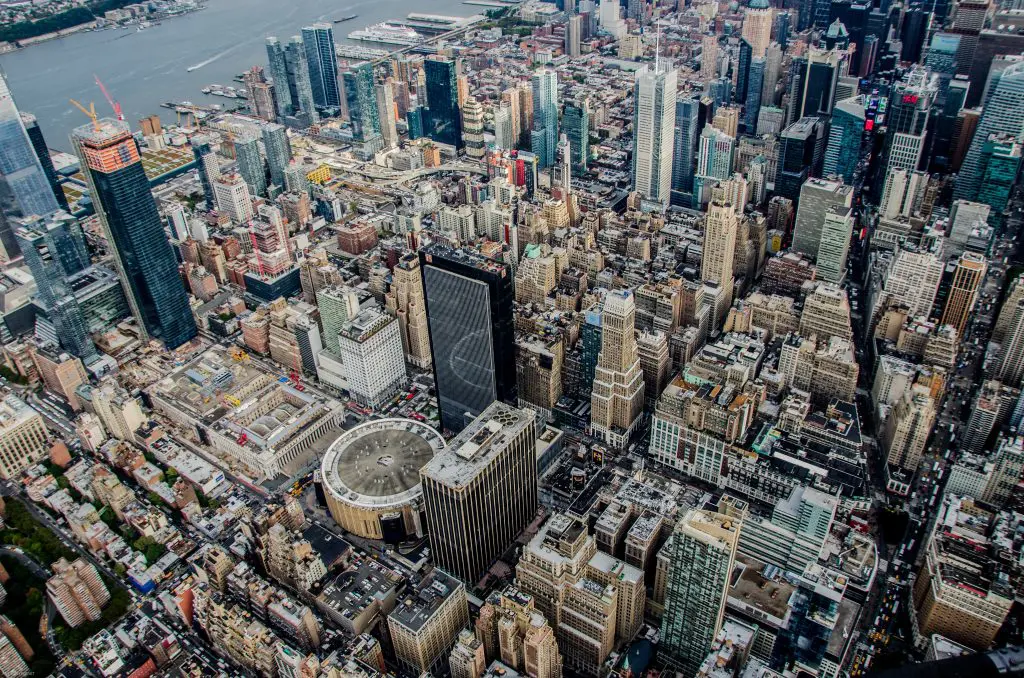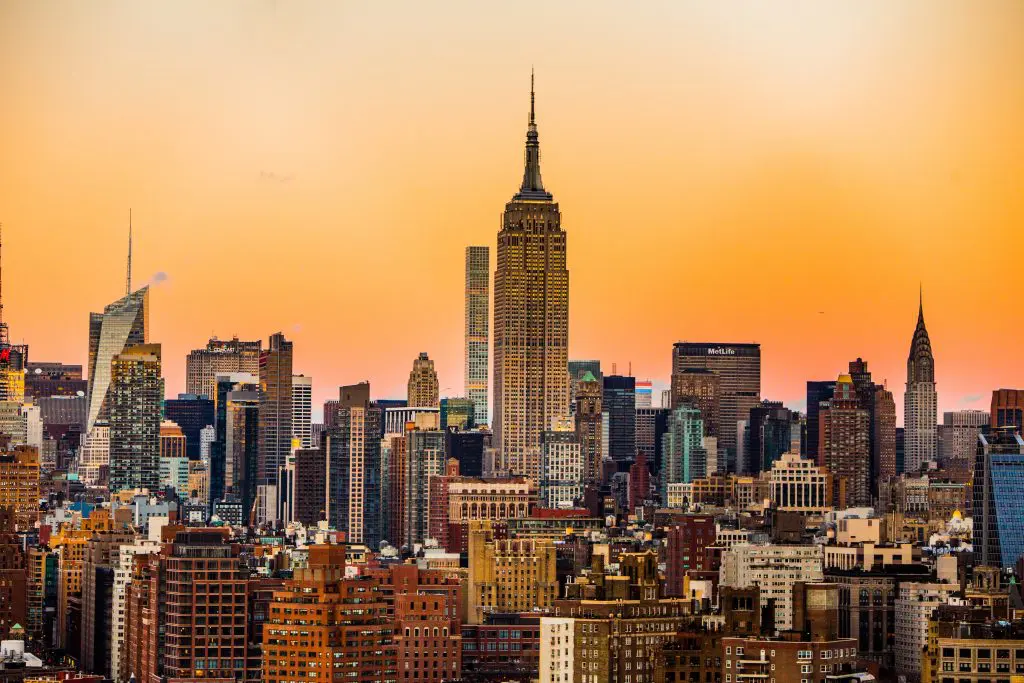Why do NBA Players Want to Play in a Big Market?
Perhaps unsurprisingly, between the New York, Los Angeles, Chicago, Boston, and Philadelphia metro regions, nearly 50 million people reside in those metros. Not only are these some of the biggest metro areas in the country, but they are also some of the biggest markets in the NBA.
And just because they are such large metro regions, what exactly makes them so attractive to NBA players? Below, we are going to look at why NBA players want to play in one of these big markets, as compared to playing for smaller, less populated ones.
What is a Large Market in the NBA?
Historically, a large market in the NBA were cities with the biggest population sizes. These included New York City, Los Angeles, Chicago, Boston, and Philadelphia. In fact, between these major cities, 45 NBA championships have been won by their respective teams, with the Boston Celtics and Los Angeles Lakers both tied for 17 total NBA championships.
And for NBA teams, being situated in a big market not only attracts more fans, but also more sponsorship opportunities. Between local advertising, big-name sponsors, access to more willing free agents, and local celebrity influence, NBA teams in larger markets hold a distinct advantage over their smaller counterparts.
In addition, being situated in a larger market provides these NBA teams with higher revenue from local network deals. That is, the bigger your local viewing audience, the more revenue these teams can garner from TV deals. And for the New York City and Los Angeles based teams, with nearly 7.5 and 5.7 million people within their local markets respectively, they are able to garner much higher tv deals than their smaller market competitors.

Benefits of Playing in a Larger Market
For many NBA players, playing in a larger market can mean great opportunities. These opportunities not only include local sponsorship deals, but also opportunities with major, international brands, looking to further their image and presence in these larger markets.
In addition, by playing in a larger market, such as New York or Los Angeles, these players have greater opportunities for fun and relaxation. From the nightlife in New York, to the sunny beaches in California, to the entertainment found in both locations.
By playing for a major team in a big market, players have a wide range of activities, opportunities, and options that they can take advantage of during their time off and the off season. Similarly, for many NBA players who are married or with a long-term partner, living in a major city provides their family with similar opportunities and access.
This access not only includes a more fulfilling social life, but can also include better school systems, a more robust and structured living situation, and a generally more fulfilling lifestyle. In addition, particularly with the Los Angeles and Miami markets, playing for those teams also provides players with better weather and the ability to explore the city nearly year-round.

And lastly, for many NBA players, playing and living in a larger city provides them with access to more celebrity influence. From New York to Los Angeles, NBA players and celebrities typically wine and dine at similar locations and are oftentimes found at similar parties and circles.
While not crucial, for many NBA players, this celebrity access is an added perk and can influence their decisions as to where they would like to play.
Disadvantages of Playing in a Larger Market
However, there are also many disadvantages to playing in a larger market. Firstly, and particularly with the New York and Los Angeles markets, there is the simple cost of living expenses that must be taken into account. While many NBA players are paid well, the cost of living in a major city is exponentially higher than living in a smaller market.
Similarly, by playing in a larger market, many NBA fans of those markets expect more from their star players. This added pressure can be difficult on an NBA player and can lead to decreased efficiency and ability. Larger markets are notorious for their fans expectations and not being able to live up to those expectations can be detrimental to a player’s future success with that team and with any future teams they may play for.
And lastly, we must consider the aspect of nightlife and socializing. Too often, particularly in these larger markets, NBA players are hounded and mobbed by fans and ill-intentioned individuals, looking to swindle and exploit these players and the money they earn.

Do Larger Markets Attract Better Players?
While it is easy to believe that larger NBA markets attract better players, and while many NBA players may prefer those larger markets, the simple truth is that for many players, they are looking to join NBA teams which are willing and able to make opportunities for themselves which can lead to winning the NBA championship.
While playing in a larger market certainly has its benefits, for many NBA players, those advantages are diminished when a larger market team is either unwilling or unable to effectively accrue a winning team. For players, winning the NBA championship is oftentimes a greater goal.
And while larger NBA markets have more resources to secure an NBA championship, players are now teaming up on their own to create their own opportunities in any market that is willing to accommodate them. We only need to look at LeBron James and his move to Miami with Dwayne Wade and Chris Bosh to see that this is true.
And lastly, for many NBA players, a sense of loyalty to their team is deeply engrained in their playing style. The most recent NBA champions, the Milwaukee Bucks, drafted Giannis Antetokounmpo with their pick in the 2013 NBA Draft. And while the team initially struggled, their persistence and determination eventually led them to the holy grail of the NBA, a finals championship.
